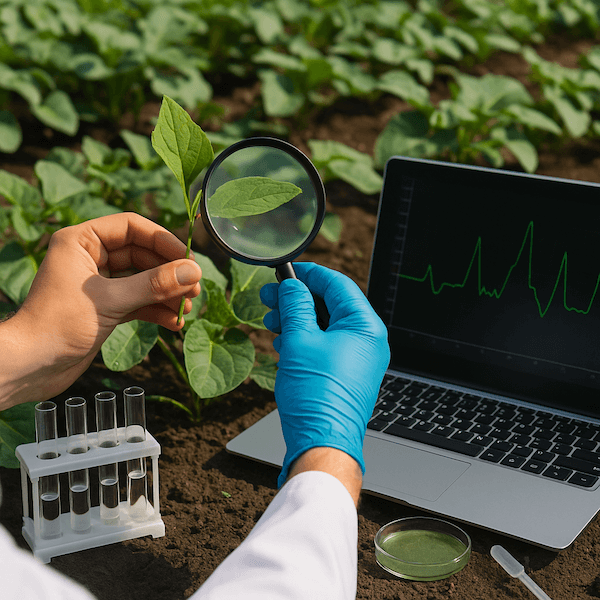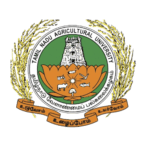Introduction Department Of Crop Management
It offers a comprehensive approach to the science and practices of crop production. Students are equipped not only with technical knowledge but also with the critical skills for sustainable agriculture practices and efficient resource utilization. The department appears to have a broad scope, addressing both traditional and modern techniques in crop production.
Know About the Department

Research Centers & Labs
At the intersection of disciplines is where new ideas emerge and innovative research happens

Institutes, Labs & Centers
At the intersection of disciplines is where new ideas emerge and innovative research happens
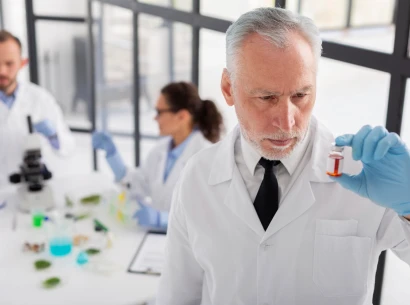
Interdisciplinary Research
At the intersection of disciplines is where new ideas emerge and innovative research happens
Key Disciplines of the department
Agronomy is a foundational component of our agricultural program, providing students with essential knowledge and hands-on experience in crop production and management. Mainly focuses on equipping students with the skills to identify and manage various agricultural inputs, resource management and crop production technologies.
Field Work and Field Visits:
Students engage in practical classes that involve actual fieldwork. This exposure helps them better understand the intricacies of crop production and management, fostering confidence in agriculture. Field visits further enhance their learning by showing how various cropping systems work in real-world conditions.
Learning Crop Production Technologies:
During the crop production course, students are introduced to a wide range of crop management practices. This includes seed bed preparation, seed treatment, nursery raising, transplanting, and a variety of management strategies for nutrients, water, weeds, pests, and diseases.
Diverse Crops:
The students work with different crops, such as rice, maize, cotton, and black gram, depending on the agro-climatic conditions. This gives them exposure to a variety of crop requirements and management techniques.
Hands-On Experience:
Each student is given a small area of land (5.0 cents) where they apply what they’ve learned about crop production. This involves practical steps such as:
- Preparing the land and planting crops.
- Managing nutrients, irrigation, weeds, and controlling pests and diseases.
- Harvesting, threshing, drying, and preparing crops for storage and marketing.
- Economic Analysis
This program seems to balance technical knowledge with hands-on application, which is great for ensuring that students are well-prepared to face the challenges of modern agriculture.
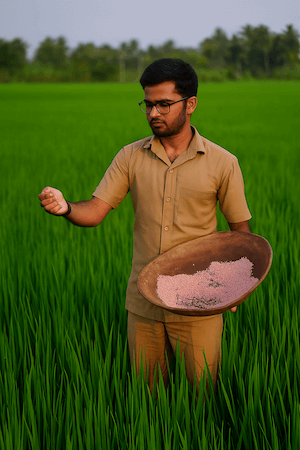
Soil Science and Agricultural Chemistry serves as the scientific foundation for understanding soil behavior, crop nutrition, and sustainable land management. The department focuses on both theoretical knowledge and practical applications to ensure optimal crop productivity while conserving soil health and environmental quality.
Objectives
• To impart knowledge about the physical, chemical, and biological properties of soils.
• To train students in the principles of soil fertility, nutrient management, and environmental chemistry.
• To develop analytical skills in soil and plant testing and interpretation of lab results for field-level applications.
Core Areas of Study
• Soil Genesis and Classification – Understanding soil formation, types, and taxonomy relevant to Indian agriculture.
• Soil Physics – Study of soil texture, structure, water retention, permeability, and temperature.
• Soil Chemistry – Exploration of soil pH, salinity, cation exchange capacity (CEC), and nutrient availability.
• Soil Fertility and Nutrient Management – Balanced fertilizer application, organic amendments, green manuring, and use of bio-fertilizers.
• Soil Microbiology and Biochemistry – Role of soil organisms in nutrient cycling, organic matter decomposition, and soil enzyme activity.
• Environmental Soil Chemistry – Soil pollution, heavy metal contamination, and remediation practices.
• Agricultural Chemistry – Chemistry of fertilizers, pesticides, herbicides, and their interaction with the soil-plant system.
Laboratory and Field Infrastructure
• Well-equipped Soil and Plant Testing Laboratory for hands-on learning.
• Facilities for soil texture analysis, organic carbon estimation, macro and micro nutrient testing, and fertilizer formulation.
• Field units for composting, vermicomposting, and studying soil-water-plant relationships.
Research and Outreach
• Ongoing research on soil health cards, precision nutrient delivery, and integrated soil fertility management.
• Student involvement in field trials, fertility mapping, and soil survey projects.
• Farmer training programs on soil sampling techniques, organic soil health boosters, and climate-smart nutrient practices.
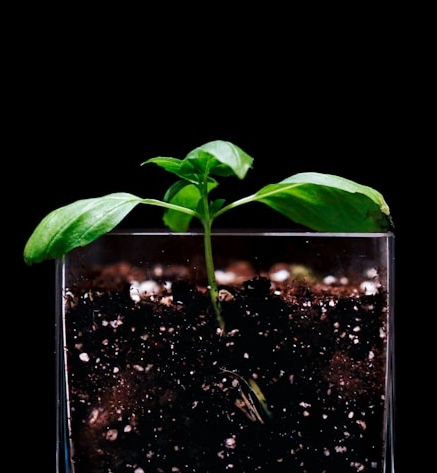
Crop Physiology is a core scientific discipline under the Department of Crop Management that explores the internal processes governing plant growth, development, and productivity. By integrating biological principles with agronomic practices, this subject equips students with a deep understanding of how crops respond to environmental and physiological factors throughout their lifecycle.
Academic Focus
Crop Physiology emphasizes the mechanisms by which crops interact with their environment and internal regulatory systems. The course content provides a strong conceptual and practical foundation in:
• Crop Growth and Yield: Studying how cellular and whole-plant physiology translates into field-level productivity.
• Mineral Nutrition of Plants: Exploring the uptake, transport, and functional role of macro and micronutrients in plant health.
• Plant Growth Regulators (PGRs): Understanding plant hormones such as auxins, gibberellins, cytokinins, abscisic acid, and ethylene in crop development and stress response.
• Photosynthesis and Respiration: Insights into the energy metabolism and gas exchange processes essential for biomass accumulation.
• Stress Physiology: Investigating the impact of drought, heat, salinity, and nutrient deficiency on plant metabolism and adaptive responses.
• Senescence and Maturation: Physiological aspects of flowering, fruiting, ripening, and harvest timing.
Practical Learning
Hands-on experiments are designed to develop technical skills and scientific inquiry in plant physiology:
• Solution Preparation: Formulating nutrient and hormone solutions for experimental treatments.
• Pigment Composition Analysis: Extracting and quantifying chlorophylls, carotenoids, and other plant pigments.
• Growth Parameter Estimation: Measuring plant height, leaf area index (LAI), biomass accumulation, and root-shoot ratios.
• Nutrient Deficiency Diagnosis: Identifying deficiency symptoms in crops and correlating with physiological disorders.
• Enzyme Assays: Performing tests to assess enzyme activity linked to photosynthesis, respiration, and stress response.
Research and Applications
• Field and lab-based research projects in climate-resilient crop physiology, water-use efficiency, and PGR-based yield optimization.
• Collaborative studies to support crop improvement, precision farming, and stress mitigation strategies.
